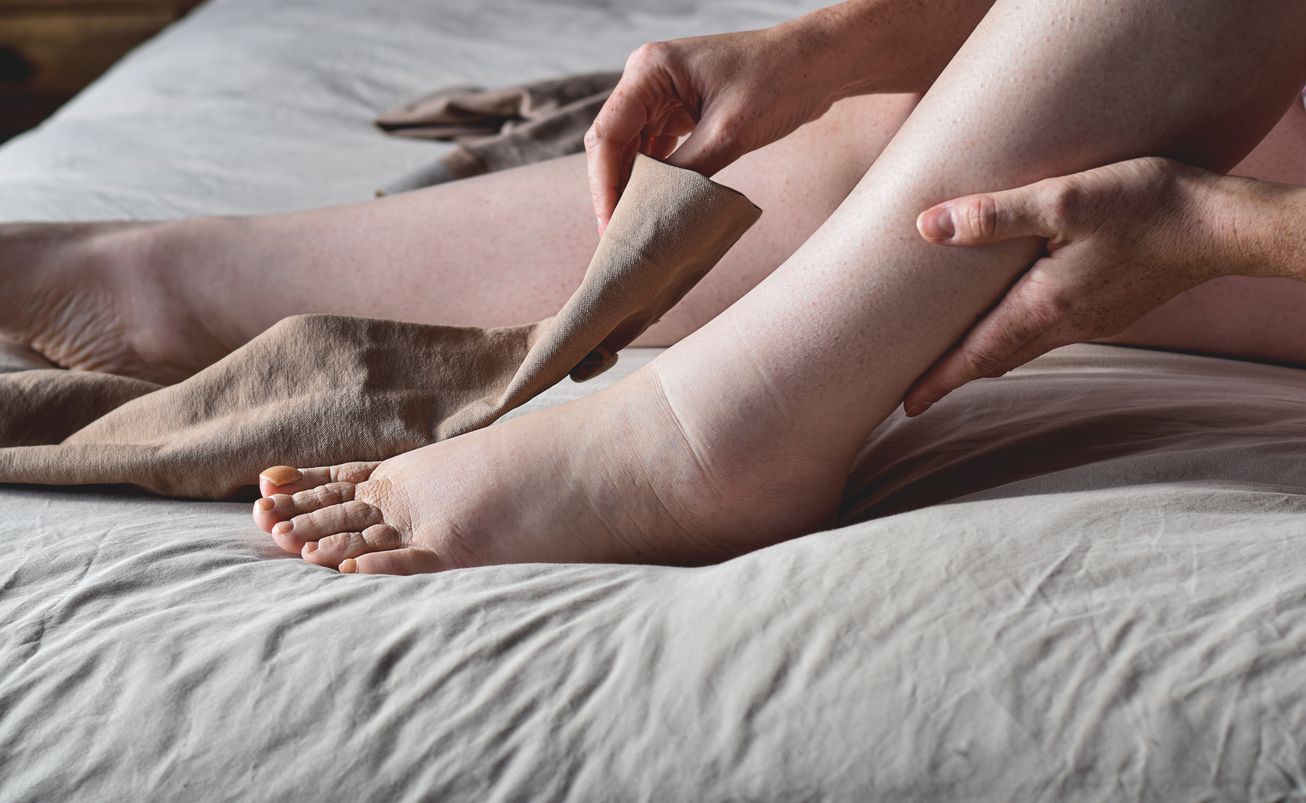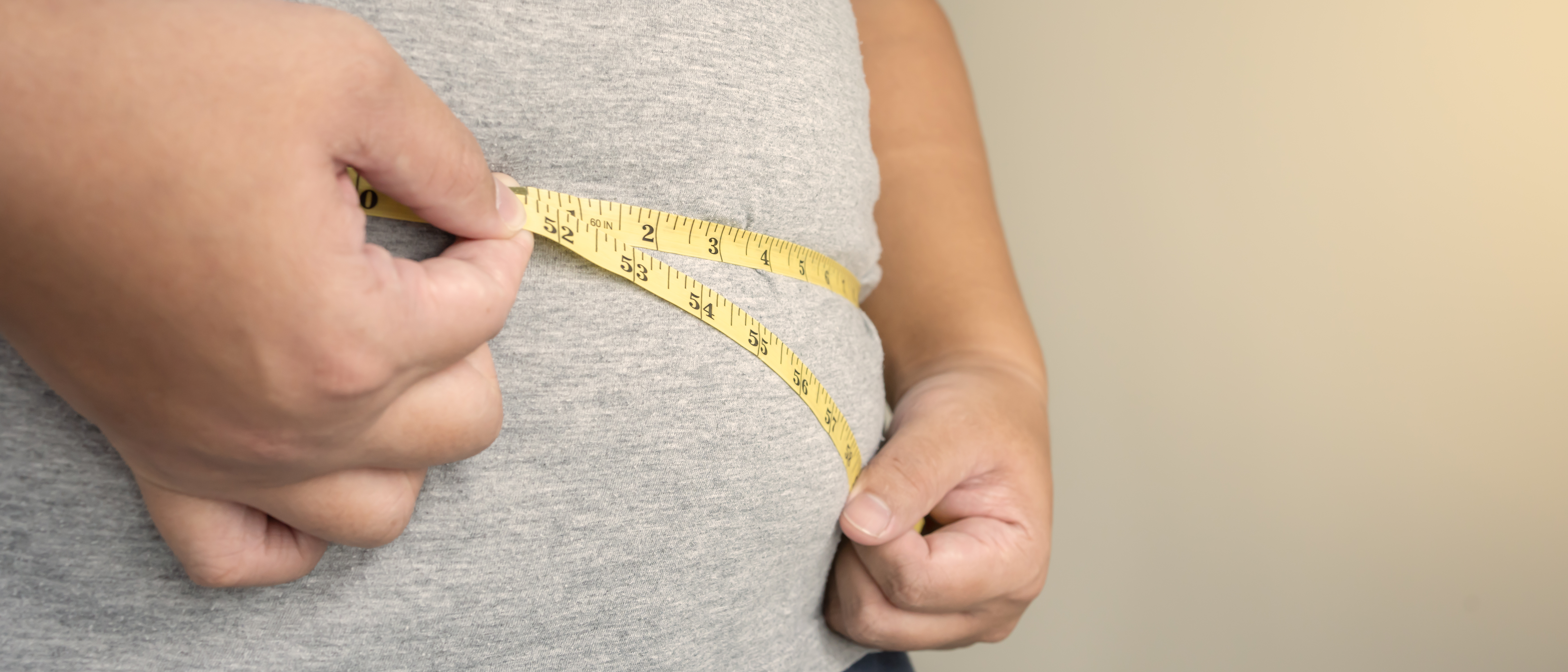2025-10-01
Less weight, less edema?
Oncology
By Ana Espino | Published on october 1st, 2025 | 3 min read
#PinkOctober #BCRL #Lymphedema
#Cancer
Lymphedema secondary to breast cancer (BCRL) affects approximately 20% of women treated for breast cancer. It is a chronic swelling of the upper limb caused by impaired lymphatic drainage, often resulting from axillary surgery or radiotherapy. This condition is disabling, painful, and significantly impairs quality of life. Among the identified aggravating factors, overweight and obesity play a central role by increasing inflammation, tissue volume, and mechanical load on the lymphatic pathways.
Despite this well-established association, few targeted interventions have been specifically tested in overweight women with BCRL. Physical activity is beneficial, as are certain nutritional approaches, but data remains fragmented. The clinical challenge is therefore to offer a multidimensional approach tailored to this particularly vulnerable subgroup of patients.
In this context, this study was initiated to assess whether a 6-month intervention combining physical exercise, a hypocaloric Mediterranean diet, and nutritional supplementation could reduce lymphedema volume and improve physical condition in overweight women after breast cancer.
112 women with unilateral upper limb lymphedema and a BMI between 25 and 40 kg/m² were included in this study. Participants were randomized into two groups:
At the end of the 6 months, women who achieved a ≥5% weight loss (primary objective) showed a significant reduction in the volume of the affected arm, along with improvements in body composition: decrease in BMI, triceps skinfold thickness, fat mass, and an increase in muscle strength, evaluated by grip strength.
These effects were strongly correlated with weight loss, but independent of the inflammatory markers measured, including C-reactive protein. The intervention was well tolerated, with no worsening of lymphedema or notable adverse events, a good adherence rate, and a perceived improvement in functional status by participants.
Post-breast cancer lymphedema, particularly in overweight women, is a frequent, painful, and difficult-to-manage chronic complication. The main challenges lie in the lack of targeted interventions, the negative impact of excess weight on symptoms, and the absence of validated protocols combining physical activity and nutrition.
The objective of this study was to evaluate the impact of a 6-month multidimensional intervention, combining supervised exercise, hypocaloric Mediterranean diet, and nutritional supplementation, on lymphedema volume and morphofunctional parameters in overweight women. The results show that a weight loss of ≥5% is associated with a significant reduction in the volume of the affected arm, improved body composition and muscle strength, without worsening symptoms or major adverse effects.
Further research will help confirm these results on a larger scale, evaluate their long-term sustainability, and individualize management strategies, in a logic of personalized rehabilitation for breast cancer survivors with lymphedema.
About the author – Ana Espino
As a scientific writer, Ana is passionate about bridging the gap between research and real-world impact. With expertise in immunology, virology, oncology, and clinical studies, she makes complex science clear and accessible. Her mission: to accelerate knowledge sharing and empower evidence-based decisions through impactful communication.
Lymphedema secondary to breast cancer (BCRL) affects approximately 20% of women treated for breast cancer. It is a chronic swelling of the upper limb caused by impaired lymphatic drainage, often resulting from axillary surgery or radiotherapy. This condition is disabling, painful, and significantly impairs quality of life. Among the identified aggravating factors, overweight and obesity play a central role by increasing inflammation, tissue volume, and mechanical load on the lymphatic pathways.
Despite this well-established association, few targeted interventions have been specifically tested in overweight women with BCRL. Physical activity is beneficial, as are certain nutritional approaches, but data remains fragmented. The clinical challenge is therefore to offer a multidimensional approach tailored to this particularly vulnerable subgroup of patients.
In this context, this study was initiated to assess whether a 6-month intervention combining physical exercise, a hypocaloric Mediterranean diet, and nutritional supplementation could reduce lymphedema volume and improve physical condition in overweight women after breast cancer.
Move and eat better: the solution to lighten the arm?
112 women with unilateral upper limb lymphedema and a BMI between 25 and 40 kg/m² were included in this study. Participants were randomized into two groups:
- An intervention group, receiving a structured program combining supervised progressive physical activity (circuit training), individualized hypocaloric Mediterranean diet, and optional nutritional supplementation.
- A control group, receiving only general lifestyle advice, without specific support.
At the end of the 6 months, women who achieved a ≥5% weight loss (primary objective) showed a significant reduction in the volume of the affected arm, along with improvements in body composition: decrease in BMI, triceps skinfold thickness, fat mass, and an increase in muscle strength, evaluated by grip strength.
These effects were strongly correlated with weight loss, but independent of the inflammatory markers measured, including C-reactive protein. The intervention was well tolerated, with no worsening of lymphedema or notable adverse events, a good adherence rate, and a perceived improvement in functional status by participants.
A new path to relieve lymphedema
Post-breast cancer lymphedema, particularly in overweight women, is a frequent, painful, and difficult-to-manage chronic complication. The main challenges lie in the lack of targeted interventions, the negative impact of excess weight on symptoms, and the absence of validated protocols combining physical activity and nutrition.
The objective of this study was to evaluate the impact of a 6-month multidimensional intervention, combining supervised exercise, hypocaloric Mediterranean diet, and nutritional supplementation, on lymphedema volume and morphofunctional parameters in overweight women. The results show that a weight loss of ≥5% is associated with a significant reduction in the volume of the affected arm, improved body composition and muscle strength, without worsening symptoms or major adverse effects.
Further research will help confirm these results on a larger scale, evaluate their long-term sustainability, and individualize management strategies, in a logic of personalized rehabilitation for breast cancer survivors with lymphedema.
Read next: Reprogramming fat to starve the tumor?
About the author – Ana Espino
PhD in Immunology, specialized in Virology

Last press reviews
Parental alcohol intoxication: the hidden impact on children’s mental health

By Carolina Lima | Published on January 19, 2026 | 3 min read
Obesity: when the kidneys become overwhelmed

By Ana Espino | Published on January 16, 2026 | 3 min read...
